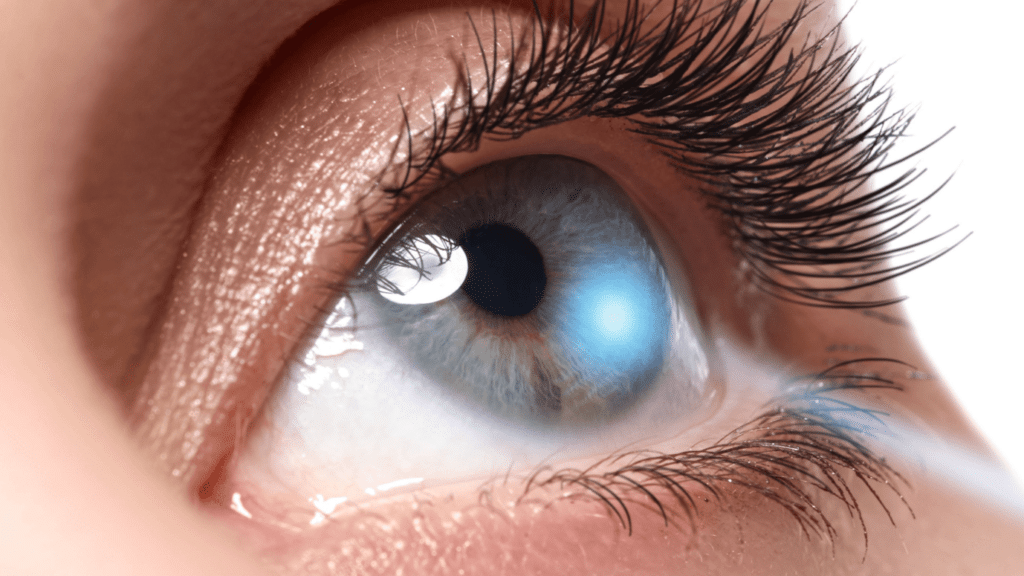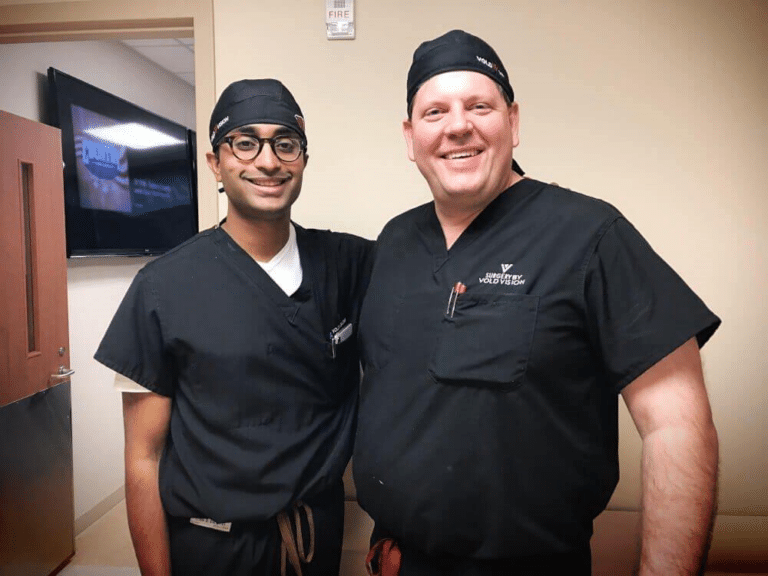What Are the Benefits of SMILE Eye Surgery Over LASIK?
Are you frustrated by blurry vision and ready to see clearly? Laser eye surgery like LASIK or SMILE can help you achieve better vision. Both are effective procedures with excellent results, but differences may affect which will work best for you. SMILE has several advantages that make it an increasingly popular option for laser vision correction.
What are SMILE and LASIK?
SMILE and LASIK are forms of laser eye surgery. They correct refractive errors, which are conditions where light does not focus correctly on the back of the eye. Both procedures use a laser to reshape the cornea. This clear structure affects the angle of incoming light, so changing its shape can cause light to focus clearly. While the process of reshaping the cornea works the same way for both, they achieve it in different ways.

How Do SMILE and LASIK Work?
SMILE and LASIK need to remove layers of the cornea to work. LASIK uses a laser to create a flap on the surface of your cornea. This flap is about 24mm around, and your surgeon lifts it aside to access the cornea. They use a different laser to remove microscopically thin layers of corneal tissue. The flap is replaced and will heal without sutures.
The same laser is used for the entire SMILE procedure. The laser creates a small disc of corneal tissue without damaging the outer layers. It creates a 2-4mm long incision that allows your surgeon to remove this disc to reshape your cornea. This small incision heals quickly and does not require sutures.
What are the Benefits of SMILE Eye Surgery Over LASIK?
LASIK may be the more well-known name. However, SMILE has its own advantages that might make you consider it. We may recommend SMILE over LASIK if we think it will help you most safely and effectively meet your goals.
Less Injury to the Cornea
The most significant benefit of SMILE is the smaller incision it uses. It only disrupts a few millimeters of your corneal surface. On the other hand, LASIK disrupts 24mm of your cornea, which damages more nerves and can have a long-term effect on your cornea’s stability. People with some corneal conditions may not be good candidates for LASIK but may be eligible for SMILE.
Lower Risk of Side Effects
As a result of the smaller incision, SMILE has a lower risk of side effects than LASIK. SMILE is less likely to cause or worsen symptoms of dry eye. The flap can shift as it heals, especially if you engage in contact sports or experience trauma to your eye. People with these risk factors may find SMILE safer.
Request a Consultation
We’d love to help you get all the information you need in order to make the best choice for your eyes. Request a consultation today! Our staff is available and happy to answer your every question.
What is Recovery Like After SMILE?
SMILE has an extremely rapid recovery time. You may experience some blurriness and irritation, which fade within a day or two. You will receive eye drops to use while your eyes heal. Most people can drive and return to other activities within a few days. You will be instructed to avoid swimming, strenuous exercise, and airborne dust for one week. After the first week, you can safely return to almost all activities.
Am I a Good Candidate for SMILE?
You may be a good candidate for SMILE if you are looking for an alternative to LASIK. People who cannot have LASIK, such as those with chronic dry eye or thin corneas, may be candidates for SMILE. Ideal candidates have reasonable expectations and generally healthy eyes.
You may not be a good candidate for SMILE if you have certain health conditions. People who are not good candidates for SMILE may still be able to have other procedures. For example, SMILE can treat myopia (nearsightedness) and astigmatism but is not used to treat hyperopia (farsightedness).
What Results Will I See With SMILE?
You can start enjoying your SMILE results within a few days, although your vision will continue to stabilize for a few weeks. Most people achieve 20/20 vision and can reduce or eliminate the need for corrective lenses. The changes to your cornea will last a lifetime, but your eyes will still experience signs of aging, such as presbyopia and cataracts.
Take the Next Step
You’ll benefit not only from the latest technologies available but also from our compassionate, personal approach. You’re more than a patient at Vold Vision in Bentonville and Fayetteville. We strive to make you as comfortable as possible while evaluating the optimal treatment plan just for you. We invite Fayetteville, Rogers, Bentonville, and Springdale residents to contact us today for a consultation at (479) 442-8653.







